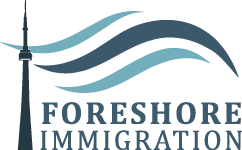Applicants from outside Canada who wish to Apply for a work visa can do so by submitting the:
- An employment offer from a Canadian company;
- A completed application demonstrating compliance with the Immigration and Refugee Protection Act and the Immigration and Refugee Protection Regulations; and
- A Labour Market Impact Assessment (LMIA) from Employment and Social Development Canada (ESDC) certifying the employer's ability to engage a foreign worker to fill the position.
Depending on their position and the sort of employment they desire to pursue, certain clients can be excluded from the necessity to receive a job offer and/or an LMIA.

OPEN WORK PERMIT
An Open Work Permit (OWP) allows a foreigner to work legally in Canada in ANY job. An OWP holder is not required to get an LMIA or employment confirmation initially. The bearer of an OWP can apply for and work in any job/occupation in Canada.
Foreigners who are Eligible for an Open Work permit include:
- An Inland Spousal Application is used to sponsor a spouse or common-law partner for permanent residence.
- A Temporary Foreign Worker's spouse or common-law partner
- International Students' spouses/common-law partners studying in Canada
- International students who have just graduated from a Canadian postsecondary school are eligible for the Post-Graduation Work Permit.
- Program participants are eligible to apply for a Post-Graduation Open Work Permit.
- Candidates with International Experience Canada (IEC) (Working Holiday)
Sponsorship on the Continent
Spouses and common-law partners sponsored under the Family Class’s Inland Spousal/Common-Law Partner Sponsorship Category can be given an open work visa while their application for permanent residency is being handled. This permits the spouse/common-law partner to work in any employment while the application for permanent residency is being handled.
Spouse/Common-Law of a Temporary Foreign Worker
A foreign temporary worker's spouse or common-law partner must establish that:
- The primary temporary foreign worker works in Canada at a managerial level, in a professional vocation, or as a technical or skilled tradesperson. In other words, the primary temporary foreign worker's employment must be at the National Occupational Classification (NOC) level 0, A, or B. This condition does not apply to main temporary foreign workers who have been nominated by a province for permanent residency (provincial nominees).
- The primary temporary foreign worker is allowed to work in Canada for at least six months.
Foreign Student's spouse/common-law partner
To be eligible for an Open Work Permit, a foreign student’s spouse or common-law partner must be a full-time student and must establish that:
- The foreign student is enrolled full-time in a diploma/degree-granting, publicly supported post-secondary educational institution; or
- The foreign student has completed his or her education and has a valid work visa for a job linked to his or her studies.
Open work permits for spouses and common-law partners are often issued with a validity date that corresponds to the amount of time that their spouse is authorized to work or study in Canada, as the case may be.
-
Graduates from Other Countries
Graduated international students must complete the Post-Graduation Work Permit Program standards to be eligible for an open work permit. -
Canada's International Experience
Candidates under the International Experience Canada (IEC) Working Holiday category can also apply for open work visas.
ADDITIONAL LMIA EXEMPT WORK PERMITS
You will work directly with a Regulated Canadian Immigration Consultant who understands the importance of your immigration application to your company, family, money, and overall well-being. We are driven to address any legal problem.
Significant Advantage
This exception is available if your company can demonstrate that you will provide significant social, cultural, or economic value to Canada. As an example:
- Workers in technology, creative and performing artists, self-employed engineers, and so on.
- Intra-company transferees with specific knowledge who, via their professional skills and experience, will contribute to the Canadian economy
- Mobilité francophone employees
Reciprocal Employment
This exception permits foreign workers to work in select industries in Canada if Canadians have equivalent options in other nations. As an example:
- Working with Canadian teams are professional athletes and coaches.
- Participants in exchange programs include professors, guest lecturers, and students.
Self-Employed & Entrepreneurs
To be granted an LMIA exemption, foreign nationals who desire to work for themselves or manage their own business temporarily in Canada must demonstrate that their enterprise will produce significant economic, social, or cultural advantages for Canadian citizens or permanent residents.
Intra-Company Transferees
Employees from international firms can be temporarily transferred to a Canadian branch without the need for an LMIA.
Skilled French-Speaking Employees
French-speaking skilled professionals with a legitimate employment offer in a province or territory other than Quebec may be excluded from the LMIA requirement.
International Trade Agreements
Some international Free Trade Agreements (FTAs) have provisions that make it simpler for business persons to work temporarily in the nations that have signed them. Foreign workers covered by a relevant FTA must still get a closed work permit, but they are free from the LMIA requirement. Examples include the North American Free Trade Agreement (NAFTA), the General Agreement on Trade in Services (GATS), and the Comprehensive Economic and Trade Agreement (CETA).
International Youth Exchange Programs
Canada also takes part in various international youth exchange programs, which allow young people to visit and work in Canada without the need for an LMIA. For example, the Young Professionals category of International Experience Canada is for persons who have a job offer in Canada that will help them advance professionally.
Exemptions Granted by the Minister
This exception applies in certain circumstances and is granted at the discretion of the Minister of Immigration. As an example:
- Academics, researchers, guest speakers, and visiting professors who are supported by a federally recognized program
- Medical residents and fellows, as well as recipients of academic honors from Canadian universities
